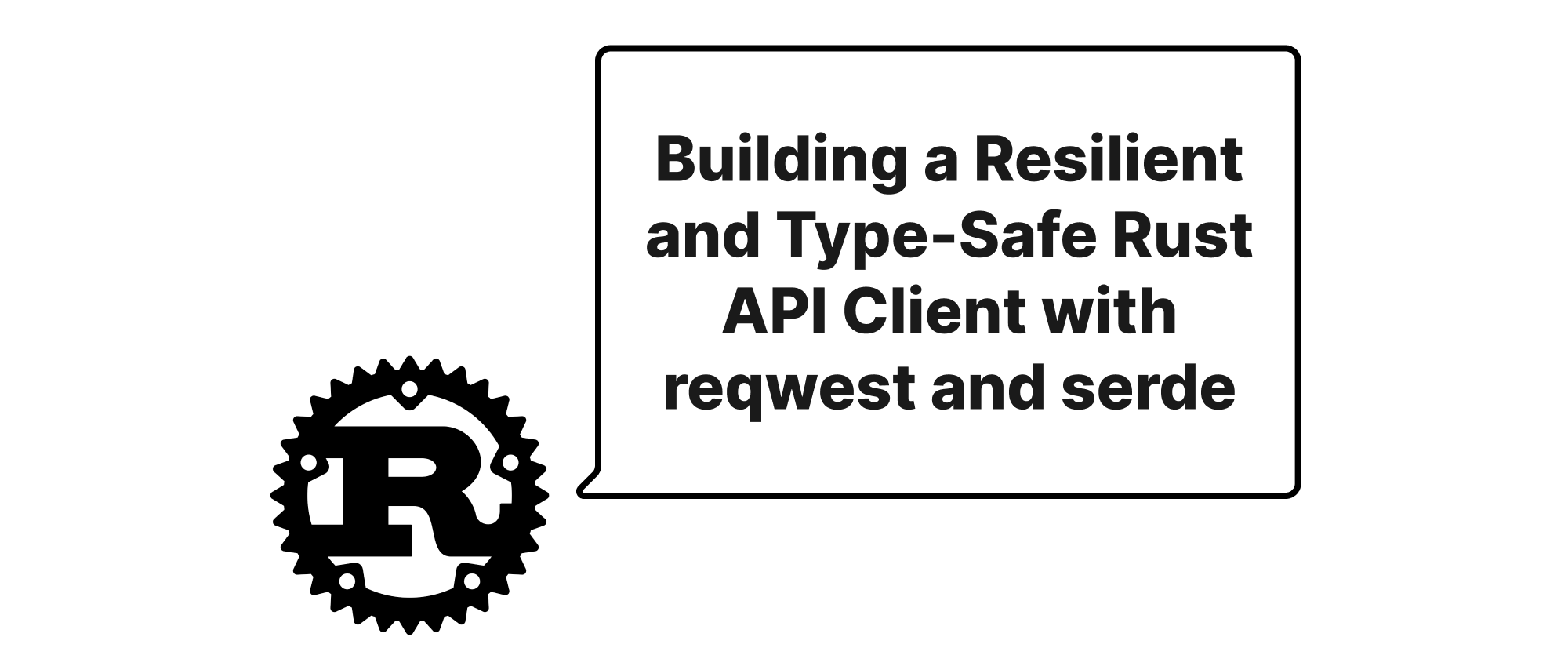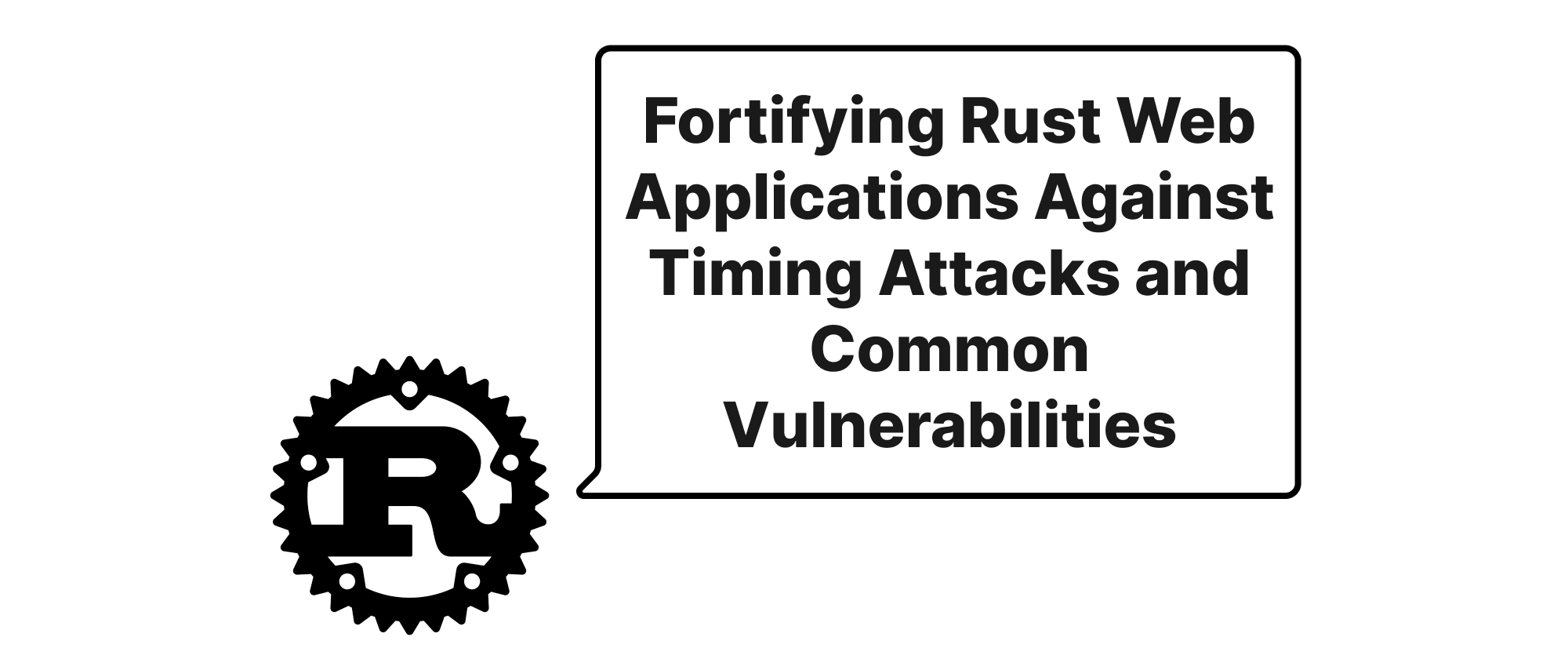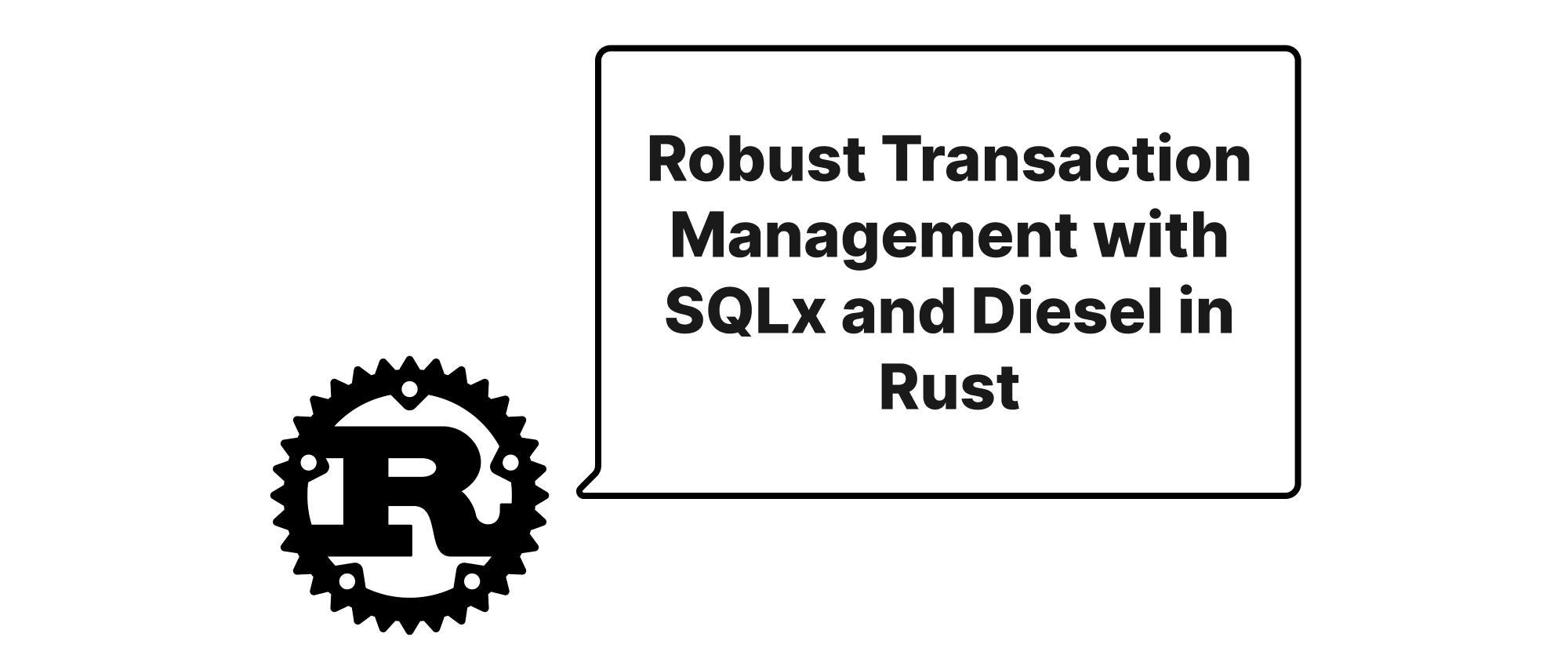Building a Resilient and Type-Safe Rust API Client with reqwest and serde
Wenhao Wang
Dev Intern · Leapcell

Introduction
In today's interconnected software landscape, applications frequently interact with external services through APIs. While making HTTP requests and parsing responses is a fundamental task, doing so reliably and with confidence in the data's integrity can be surprisingly challenging. Manual parsing often leads to boilerplate code, potential runtime errors due to incorrect assumptions about data structures, and a difficult debugging experience. This is especially true in a language like Rust, where type safety is a cornerstone of its design philosophy.
This article delves into how to build a robust and type-safe API client in Rust, harnessing the strengths of two prominent crates: reqwest for handling HTTP communication and serde for efficient and reliable data serialization and deserialization. By combining these powerful tools, we can create clients that are not only performant but also provide compile-time guarantees about the data exchanged with external APIs, significantly reducing the chances of runtime errors and improving developer productivity.
Core Concepts Explained
Before we dive into the implementation, let's briefly define the central concepts that underpin our API client.
- HTTP Clients: At its core, an API client sends HTTP requests (GET, POST, PUT, DELETE, etc.) to a remote server and receives HTTP responses.
reqwestis a popular, ergonomic, and async-first HTTP client for Rust. It handles low-level networking details, allowing us to focus on the application logic. - Serialization: This is the process of converting an in-memory data structure (like a Rust
struct) into a format suitable for transmission over a network or storage (e.g., JSON, YAML, XML). When sending data to an API, we serialize our Rust data into the API's expected format. - Deserialization: The reverse of serialization, this is the process of converting data from a transmission/storage format back into an in-memory data structure. When we receive a response from an API, we deserialize its content into our Rust types.
serde: This is the de-facto serialization/deserialization framework for Rust. It provides a derive macro system that allows developers to easily serialize and deserialize custom data types without writing manual parsing logic. It supports numerous formats through ecosystem crates (e.g.,serde_json,serde_yaml).- Type Safety: In Rust, type safety means the compiler verifies that variables are used according to their declared types. This prevents entire classes of errors, like trying to perform string operations on a number. When interacting with APIs, type safety ensures that the data we send and receive conforms to our expectations, catching discrepancies at compile time rather than runtime.
- Error Handling: A robust API client must gracefully handle errors, whether they stem from network issues, invalid server responses, or API-specific error messages. Rust's
Resultenum is perfectly suited for this, allowing us to explicitly manage potential failure paths.
Building the Client: Principles and Practice
Our goal is to build an API client that clearly defines the API's input and output structures as Rust types. This provides strong compile-time guarantees and makes the code much easier to understand and maintain.
Let's imagine we're building a client for a simple "Todo" API.
1. Project Setup
First, create a new Rust project and add the necessary dependencies to your Cargo.toml:
[package] name = "todo_api_client" version = "0.1.0" edition = "2021" [dependencies] reqwest = { version = "0.12", features = ["json"] } # Enable JSON feature for reqwest serde = { version = "1.0", features = ["derive"] } # Enable derive feature for serde serde_json = "1.0" tokio = { version = "1.0", features = ["full"] } # For async runtime thiserror = "1.0" # For robust error handling
reqwestwith thejsonfeature allows us to easily send and receive JSON.serdewithderiveenables the powerful#[derive(Serialize, Deserialize)]macros.serde_jsonis the specificserdeimplementation for JSON.tokioprovides the asynchronous runtime necessary forreqwest.thiserrorhelps create custom error types with less boilerplate.
2. Defining Data Structures
We'll define Rust structs that mirror the JSON structures of our Todo API. These structs will be Serialize and Deserialize using serde.
use serde::{Deserialize, Serialize}; #[derive(Debug, Serialize, Deserialize)] pub struct Todo { pub id: Option<u32>, // `Option` because ID might not be present when creating pub title: String, pub completed: bool, pub user_id: u32, } #[derive(Debug, Serialize)] pub struct CreateTodo { pub title: String, pub completed: bool, pub user_id: u32, } #[derive(Debug, Deserialize)] pub struct ApiError { pub message: String, pub code: u16, }
Todo: Represents a todo item retrieved from the API. TheidisOption<u32>because the API typically assigns the ID upon creation.CreateTodo: Represents the data needed to create a new todo. Notice it doesn't have anidfield.ApiError: A generic structure to capture error responses from the API.
3. Custom Error Handling
It's crucial to define a specific error type for our client to encapsulate various potential failures.
use thiserror::Error; #[derive(Debug, Error)] pub enum TodoClientError { #[error("HTTP request failed: {0}")] Reqwest(#[from] reqwest::Error), #[error("Failed to parse JSON response: {0}")] Serde(#[from] serde_json::Error), #[error("API returned an error: {message} (code: {code})")] Api { message: String, code: u16, }, #[error("Invalid base URL")] InvalidBaseUrl, }
- We use
thiserrorto automatically implementDisplayandFromtraits for our error enum. #[from]makes conversion fromreqwest::Errorandserde_json::Errorautomatic, simplifying error propagation.Apivariant is for structured API error responses, allowing us to include context.
4. Building the Client Structure
Now, let's create the TodoClient struct and its methods.
use reqwest::Client; use std::fmt::Display; pub struct TodoClient { base_url: String, http_client: Client, } impl TodoClient { pub fn new(base_url: &str) -> Result<Self, TodoClientError> { let parsed_url = url::Url::parse(base_url) .map_err(|_| TodoClientError::InvalidBaseUrl)?; Ok(Self { base_url: parsed_url.to_string(), http_client: Client::new(), }) } // Helper to build full URL fn get_url<P: Display>(&self, path: P) -> String { format!("{}/{}", self.base_url.trim_end_matches('/'), path) } pub async fn get_all_todos(&self) -> Result<Vec<Todo>, TodoClientError> { let url = self.get_url("todos"); let response = self.http_client.get(&url).send().await?; if !response.status().is_success() { let api_error: ApiError = response.json().await?; return Err(TodoClientError::Api { message: api_error.message, code: api_error.code, }); } let todos: Vec<Todo> = response.json().await?; Ok(todos) } pub async fn get_todo_by_id(&self, id: u32) -> Result<Todo, TodoClientError> { let url = self.get_url(format!("todos/{}", id)); let response = self.http_client.get(&url).send().await?; if !response.status().is_success() { let api_error: ApiError = response.json().await?; return Err(TodoClientError::Api { message: api_error.message, code: api_error.code, }); } let todo: Todo = response.json().await?; Ok(todo) } pub async fn create_todo(&self, new_todo: &CreateTodo) -> Result<Todo, TodoClientError> { let url = self.get_url("todos"); let response = self .http_client .post(&url) .json(new_todo) // `reqwest` automatically serializes with `serde_json` .send() .await?; if !response.status().is_success() { let api_error: ApiError = response.json().await?; return Err(TodoClientError::Api { message: api_error.message, code: api_error.code, }); } let created_todo: Todo = response.json().await?; Ok(created_todo) } // You can add more methods for update, delete, etc. }
Explanation:
-
TodoClient::new: Constructor that takes a base URL and initializes thereqwest::Client. It performs a basic URL validation. -
get_url: A private helper method to construct full API endpoints from relative paths. -
get_all_todos/get_todo_by_id:- Constructs the full URL.
- Uses
self.http_client.get(&url).send().await?to make the GET request. The?operator propagatesreqwest::Error. - Error Handling: It checks
response.status().is_success(). If not, it attempts to deserialize the response body into ourApiErrorstruct and returns aTodoClientError::Api. This is a robust way to handle structured API errors. - If successful,
response.json().await?deserializes the JSON response directly into ourVec<Todo>orTodostruct. The?operator handlesserde_json::Error.
-
create_todo:- Uses
post(&url)for a POST request. json(new_todo)is a powerfulreqwestmethod that takes anySerializetype (CreateTodoin this case), serializes it to JSON usingserde_json, and sets theContent-Type: application/jsonheader.- Error handling and deserialization of the successful response are similar to GET requests.
- Uses
5. Application Example
Let's put our client to use!
#[tokio::main] async fn main() -> Result<(), TodoClientError> { // A common public dummy API for testing. // Replace with your actual API base URL. let base_url = "https://jsonplaceholder.typicode.com"; let client = TodoClient::new(base_url)?; println!("--- Fetching all Todos ---"); match client.get_all_todos().await { Ok(todos) => { for todo in todos.iter().take(5) { // Print first 5 for brevity println!("{:?}", todo); } } Err(e) => eprintln!("Error fetching all todos: {}", e), } println!("\n--- Fetching Todo with ID 1 ---"); match client.get_todo_by_id(1).await { Ok(todo) => println!("{:?}", todo), Err(e) => eprintln!("Error fetching todo by ID: {}", e), } println!("\n--- Creating a new Todo ---"); let new_todo = CreateTodo { title: "Learn Rust API Client".to_string(), completed: false, user_id: 1, }; match client.create_todo(&new_todo).await { Ok(created_todo) => println!("Created todo: {:?}", created_todo), Err(e) => eprintln!("Error creating todo: {}", e), } // Example of handling an expected API error (e.g., non-existent ID) println!("\n--- Fetching a non-existent Todo (ID 99999) ---"); match client.get_todo_by_id(99999).await { Ok(todo) => println!("Found non-existent todo: {:?}", todo), // Should not happen Err(e) => { eprintln!("Expected error fetching non-existent todo: {}", e); if let TodoClientError::Api { message, code } = e { println!("API Error Details: Message='{}', Code={}", message, code); } } } Ok(()) }
This main function demonstrates how to:
- Instantiate the
TodoClient. - Call its asynchronous methods.
- Handle both successful
Okresults and variousErrvariants usingmatch. - Specifically handle
TodoClientError::Apito inspect structured API error responses.
Key Benefits of this Approach
- Type Safety: All API requests and responses are strongly typed. If the API changes, Rust's compiler will flag inconsistencies between your
structdefinitions and the actual JSON structure at compile time, preventing subtle runtime bugs. - Robust Error Handling: Explicit error types and
Resultguarantees that all potential failure paths are considered, from network issues to malformed JSON or API-specific errors. - Readability and Maintainability: The code clearly defines the expected data shapes and interactions with the API, making it easier for others to understand and for future modifications.
- Reduced Boilerplate:
serde's derive macros andreqwest's.json()helper significantly reduce the amount of manual parsing and serialization code. - Asynchronous by Design: Leverages Rust's
async/awaitfor non-blocking I/O, vital for responsive applications.
Conclusion
Building a robust, type-safe API client in Rust is achievable and highly beneficial. By meticulously defining our data structures with serde and utilizing reqwest for powerful and ergonomic HTTP communication, we can construct clients that are resilient to change, provide strong compile-time guarantees, and significantly enhance developer productivity. This approach empowers us to integrate with external services with confidence, knowing that our application's data integrity is upheld from the network layer all the way to our application logic.


